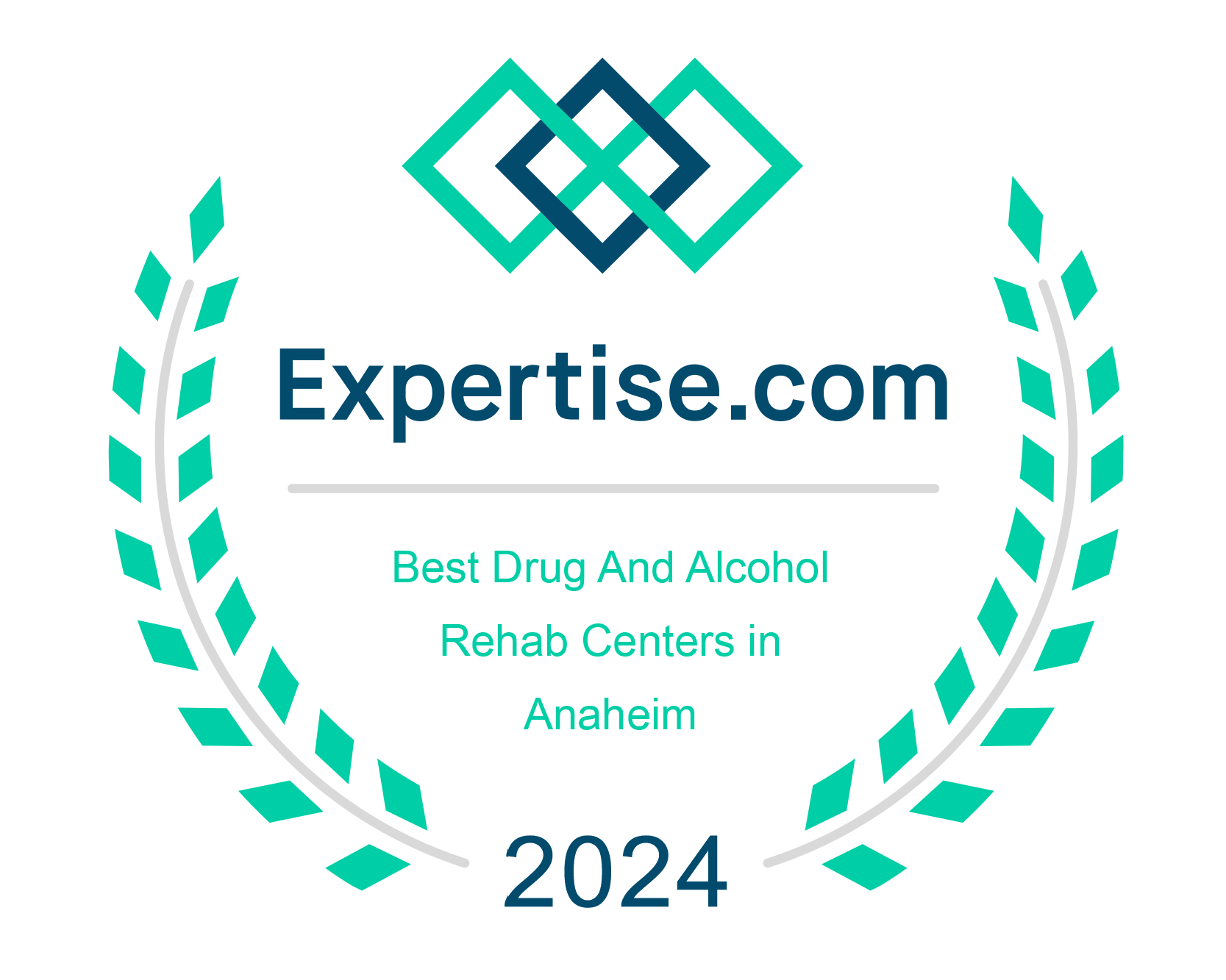Clare Waismann, RAS/SUDCC, founder of Waismann Method® and Domus Retreat® and David Livingston, LMFT talk today about Domus Retreat®, an important resource within the Waismann Method treatment process. The conversation addresses information about Domus, and important considerations to be aware of in planning the beginning stages of addiction, recovery, sobriety maintenance, and aftercare.
What Is Domus Retreat and Why Is It Essential for a Successful Recovery from Substance Use Disorder?
Interview with the Founder and Clinical Director of the Treatment Center
Podcast Episode Transcript
Dwight Hurst, CMHC: Welcome, everybody, back to the Waismann Method podcast, I’m your co-host, Dwight Hurst will be joined in a minute, of course, as always, by Clare Waismann, David Livingston also going to jump on the line. We’ve got a pretty special question today, at least special to us here at the Waismann Method. We have a couple of different focuses that we have.
Dwight Hurst, CMHC: It’s well known as we talk on this podcast that we do rapid detoxification to help people get over the chemical withdrawals and introduce themselves into the pursuit of health and sobriety. One of the exciting things that is attached to the program is actually what we’ve referred to before, the Domus program. We’re going to be talking a little bit more about what the Domus program is and what need that fills. It touches a lot of areas that have to do with aftercare when you’ve begun a journey into sobriety and once people have detoxified. So let’s learn a little bit more about this main question of what is Domus and what do we do there and why do we do it?
Clare Waismann, RAS/SUDCC: Domus started Recovery Center for patients going through medical detoxification in the hospital, mostly rapid detox. We started rapid detox over two decades ago, but early on we understood that sending patients right after detox to a hotel room, sending them home was irresponsible, unfair to the patient and to family members because patients go through a tremendous transition, a physiological transition that affects them physically and emotionally after detoxification, possibilities of relapse are huge because they don’t have tools to deal with those discomforts. Their body is hypersensitive to any unwanted feeling because they have no endorphins emotionally. A lot of things are surfacing at the same time because that blanket has been taken away from them between them and life on life’s terms. So that’s the reason we created Domus, because again and our second option was sending them to treatment centers. The problem with treatment centers is you just went through detoxification, now you put them on meetings three times a day and other people talking about the drug, the drug, the drug, what was when I used the drugs and, you know, talking about trauma and it was too much too soon. What made them crave and want to use.
Dwight Hurst, CMHC: I know that’s a big concern is not wanting to trigger and I know you’re also very big on not over-labeling right out of the gate here. Let’s start out and let’s just do the same thing with you that we do with everyone else. You kind of lose control when you defer. Right?
Clare Waismann, RAS/SUDCC: Right. And most patients that came to us at that point had been to five, six, 10 rehabs and obviously, you know, did not succeed. So we wanted to give them something new where we physically detox them and found a way to keep them for a short term with us to help them physically regain their strength while emotionally becoming a bit more stable, so hopefully we could diagnose, you know, the root of the issue or at least have a plan, what’s the best foot forward after that if that was followed by a psychiatrist, a therapist even going to a treatment center, whatever it was, you would be unique to the person’s need and not as a preset protocol.
Clare Waismann, RAS/SUDCC: So that’s how Domus came about throughout the years. And especially with covid right now, the inability to put patients in the hospital made us use our license to the extent that was provided to us also using as a medical detox. So actually, patients have been doing quite well on getting detox at Domus. They rest a lot, they have support 24/7 and they get through the detoxification, you know, while being supported physically and emotionally. Right. So, Domus, right now, I am hoping that, you know, we are going to start bringing more patients straight to Domus and some just for a day for little more physical examination and evaluation at the hospital and also as a recovery center for the patients that go through sedation detox.
Dwight Hurst, CMHC: It’s interesting.
Clare Waismann, RAS/SUDCC: It’s a very unique place.
Dwight Hurst, CMHC: Yeah, it’s really interesting how the pandemic situation is sort of requiring innovation and all sorts of different areas. And that’s what you’re talking about really is kind of adapting to the need by using a different space. Have there been any of those things that you think you’ll keep after, you know, things settle down with being able to use the hospital again? Will Domus still be able to go?
Clare Waismann, RAS/SUDCC: That’s that’s what I was telling you. I think at this point, bringing patients straight to Domus that are healthy and have no need for the hospital, A, is less costly for the patient. And B, some patients are just very uncomfortable and get very anxious in a hospital setting. So I will keep the detoxification at Domus.
Dwight Hurst, CMHC: That’s another level of personalization then to be able to offer that as well. That’s interesting.
Clare Waismann, RAS/SUDCC: Yeah, correct. And again, nothing’s set in stone. I mean, if the patient is there for a day or two and we believe that they do need hospitalization for a day or two, plans can always change. You know, patient safety and well-being are number one regardless. It’s just offering more options. I think being able to have options is a wonderful thing in life and we’re just being able to offer more of that.
Dwight Hurst, CMHC: So let’s so tell me a little bit about what happens if I’m a patient, maybe have gone through detox and I walk into Domus program, Domus Retreat. What happens to me? What’s the treatment there like and what am I going to likely experience?
Clare Waismann, RAS/SUDCC: So before you even come in, you know, you do have a consultation over a medical director on the phone, and if there is that, you know, most of the time there is any preexisting psychiatric conditions, then you also talk to David. So there is a consultation. I wouldn’t even see an evaluation, but a consultation before they even come in that gives patients, because we receive patients from all over the country, gives patients an idea of how long they will need to be with us. Again. We do not require 30, 60 or 90 days.
Dwight Hurst, CMHC: You’re not big on the automatic numbers thing, right? Right. It goes against the whole individualization.
Clare Waismann, RAS/SUDCC: It is because I believe that for some patients, being away for 30, 60 days is detrimental by the time they get back home there is not much for them to come back to. So there is an evaluation of, you know, their productivity at home, their risk of being home, the level of care they will need in patients, so putting all that together, we can come up with a plan 10 days, 14 days, you know, whatever it is the patients need.
Clare Waismann, RAS/SUDCC: So once the patient comes in, they will see Dr. Lowenstein so he can do, you know, a medical examination and find out what medications then they will need in order to get through the withdrawal as safely and as comfortable as possible. Those medications are adjusted throughout the state of the patient. So, again, what he believes in the first day is just enough to cover that patient as we start learning the patient’s metabolism and also psychological issues have a major impact of how patients feel physically. If patients are anxious, you know that they will feel things more intensely, you know, patient’s history or sleep disorders, all that will play a part in what he will give the patients. Patients if he believes they need they also go to the lab and have a full lab done. At this point, we are requiring patients to test for COVID, at least with a minimum of two days before they come into Domus as well.
Dwight Hurst, CMHC: Yeah, yeah. You don’t want that to break out in that environment.
Clare Waismann, RAS/SUDCC: That’s correct. So we’ve been very lucky, knock on wood, throughout the year that we have not had any infections in at Domus. So we are hoping to keep it that way. So I am very strict on cleaning, you know, and I have but hospital-grade fire sites for every possible corner of Domus. So we’ve been on top of that, you know, as much as we can throughout the beginning one of the things that we have at Domus is individualized therapeutical services. What they will receive and when they will receive also will be based on how they’re feeling The privacy of the patient and respecting where they are is another reason why, you know, Domus maintains all private suites. You know you don’t have to share rooms. That means share your experience of where you are or somebody else is. You know, somebody is extremely anxious and likes to talk, you know, a lot they should not, you know, disturb your own needs at that time.
Clare Waismann, RAS/SUDCC: So everything not just the therapy, you know, a place where people can read a book or listen to some music away from others. So we don’t have groups who don’t have the need to share with strangers all your stories, if you feel like sitting with somebody and sharing outside, that’s up to you. But, you know, we don’t require that. Sometimes people are just not ready to share or to dig in. And what is good for them at that time. And I think that goes with David as well. You know, when David meets them, I’ll let him tell you a bit more about that. But I think every service from emotional therapy to physical services of yoga, and drama therapy, whatever that is, is truly going to be based on, you know, their state at that moment.
Dwight Hurst, CMHC: Right, I was curious about that, David, when you’re in that situation where you’ve got, you know, a relatively short term, short amount of time that you’re working with the patient, how do you approach that as far as how do you set goals or what kind of interventions do you use?
David Livingston, LMFT: If somebody and most people who come in, not everybody, but most people really actually want my help and when they. And then when I can begin to talk to them in a way that feels useful in a way in which they feel like I’m actually really seeing them, I’m giving them information that’s specific and pertinent to what they’re trying to understand. Then a rapport gets built. Right. So it’s my responsibility to be useful to them and truly useful and see them and understand them. And that’s my responsibility. And then assuming that I’m being effective doing that, a rapport gets built, you know, otherwise, it’s there. And sometimes people aren’t that interested in help or therapy for one reason or another. And it’s more difficult. But generally, people are there because they want to understand. They want to get better. They want to move forward, they’re looking to create a new vision of their life, get back to themselves as they remember themselves at some other point in their life, which is common. And so the process takes that form.
Dwight Hurst, CMHC: It’s a very positive environment then that you try to foster there. And I really like how you have said this often times that you tend to go into treatment looking at the person and saying they want to get better. You’re kind of assuming that right away that they’re they’re here to get better and I’m here to help. And I feel like that’s not always how people feel. They many times will run into situations where people are like, OK, you’re going to fight me. Really? I just know I do want to get better. Yeah, come on. Almost as a setup.
Clare Waismann, RAS/SUDCC: I think the whole setup at Domus is very different than the you know, the traditional treatment centers. I think most people that work with us have not even worked on that setting, but on the healthcare setting. And one of the reasons I was trying to do that is so they would not have that hard drive, that functions as people here, but they don’t really want to get well, you know, they’re always lying. So I think that when you ask David, you know what you know, what do we accomplish there? I think we are very clear, number one, to the patience of what we are going to accomplish here, so we don’t promise anybody that their life is going to change, that their spouse is going to change, their kids are going to change that we are fixing all their mental health issues, social issues. You know, we are telling them we’re going to give them the best foot forward. And I think within that 10 days, two weeks, they are with us. Even if they do relapse, they know that they were respected, that’s life wasn’t so bad, without that substance, that they were treated like another human being and not a drug addict and the food tasted good and they know they were able to relax.
Clare Waismann, RAS/SUDCC: So I think that sits there. So, again, even if they do relapse or even, you know, if physically they go through a hard time. They have that memory in their hard drive that it can be OK without it. And I think that is critical for the patient leaving then because is almost you know, you get somebody in this dark tunnel and now they have the ability to turn on the light,
David Livingston, LMFT: Clare, that’s that to have to come back to your people, come and get detoxed because they have some memory of themselves, of a better self, of a better life, a feeling better. And our job is to get him back there. And my job is to see that part of them and to see all of the difficulties, whether they’re internal or external in their lives that inhibit that from being sustainable. Right. Because they’re there to get back to some part of themselves that they want. And so the process is to help them feel that again, not just intellectually know their detox, but feel alive again and some sense of a home inside themselves and to begin to create some vision of what it means to have a home inside and outside again that feels good to them, create some idea of what’s going to support it, what the challenges are moving forward in and maintaining that. And to do that, you have to see the person and see where they’re at. And so that that’s really how I approach it. And I think the whole it’s like you’re saying, Clare, that the whole philosophy of Domus is organized around these principles and from the detox process in which we try to get people detox as quickly, as safely and with as little suffering as possible, because it is not the type of suffering that leads to people getting better. What leads to them getting better is feeling better, getting this difficult thing accomplished as quickly and as safely and with as much care as possible. And then that that that increases the sense of well-being and self-esteem and internalized value. It’s that that’s the whole process.
Dwight Hurst, CMHC: Wow. I wonder if some of that comes from that mentality that you mentioned, which is the health care mentality versus a lot of addiction treatment has a shadow over it of involuntary treatment or court-ordered treatment and not to denigrate some of those programs that do exist. And having worked in some of those programs, I know that they can function well and can save lives, but it’s a different issue. Unfortunately, though, within those same programs that I thought some good therapy was happening, there is also a lot of people who would approach it with almost that probation officer mentality. Even the social workers or even the counselors would get kind of into that cynical place to where it was adversarial.
Clare Waismann, RAS/SUDCC: I kind of don’t think so. Dwight and David, maybe you disagree with me. I think everybody wants to feel good. Everybody wants to be happy. Nobody wants to be a slave of any substance. I think when David keeps repeating seeing people where they are is incredibly important because most of these places, they don’t see people, they see addiction and they have that bad taste to the condition.
Clare Waismann, RAS/SUDCC: And they have those principles of, again, stealing lying. They are saying, oh, the above. So I think when they speak to the patient, they already have that reactive form of responding, oh, you want more medication or you’re going to have to handle how you’re feeling. And I think it puts the patient. In that place of responding to almost, you know, the attack, it puts the patient in the place where they don’t feel loved, they don’t feel worthy of not just of the care, but worthy of being happy. They don’t feel capable. They know they are told that once an addict, always an addict. When we think about 30, 60, 90 days, because people often say to us, like in the beginning you said, I mean, what can you do in such a short amount of time? I actually had a rehab. And again, I think there are people are different. Their DNAs are different. That they make up is different. Their history is different. And I think treatment has to be different as well because he has to fit the patient and not the condition I had, I would say, when I started doing rapid detoxification. So you’re probably talking to decades ago, the head of the biggest rehab in United States. Call me and say, “What the hell do you think you can do for patients in a week? And I said to them, probably more than you can do in 90 days. And I meant that, I meant that because all those 30, 60 and 90 day programs are wonderful business model. Think about that. If I have you at Domus for 30, 60 or 90 days and insurance is paying for you for every day, I don’t have to worry about that bed being empty.
Clare Waismann, RAS/SUDCC: What I do is having a patient for a week or two. I’m constantly worried how I’m going to fill those beds.
Dwight Hurst, CMHC: So it comes down to running the program for the patient or running the program for the program.
Clare Waismann, RAS/SUDCC: Correct. I am redoing our website and I do most of the writing for the website.
Dwight Hurst, CMHC: Opiates.com, so a little plug that correct.
Clare Waismann, RAS/SUDCC: The 25-year-old website. So. I am going through a lot of the websites, you know, for their treatment centers from NIDA, different places, organizations that deal with addiction and all of them. All of them say the same thing. The longer the patient is in treatment, the better the chance of recovery. If patients leave treatment before 30 days, they’re very likely to relapse.
Dwight Hurst, CMHC: And I’ve seen that thrown in people’s faces, too, sometimes where if someone for life circumstances does leave, yeah, they’re very ashamed for it.
Clare Waismann, RAS/SUDCC: The statements are discouraging. The statements are how do they know? I know, in effect, that if I left my job, my family, for 30 or 90 days, when I come back, I’m not going to be able to handle what’s going to be left here. So my workload 30 years will be down the drain. So, again, I think we need to start treating patients where they are. Not based on our needs, based A on their needs. And I think patients at Domus, they feel seen, they feel heard, and that’s and that’s critical for somebody to feel some kind of self-worth. You know, I think when they leave David’s office, they say, oh, my God, you know, so many times patients say to me, David understood more of who I am or where I want to be than all therapists and treatment centers I have been. All that is, is that David was there to hear them, not to tell them what to do, how to do it, but to actually understand where they are and start, you know, walking with them from that point. It is a relationship based on their needs. So if they left, you know, we have mothers that had a baby a month ago or two months ago and, you know, for one reason or the other day or relapse or start using opioids due to a C-section or whatever, it happens and they come. I know they can’t be here for an extended period of time that would be detrimental for them and for the child. So, you know, if we can get them to a place of stability and health. And they can go in, you know, in 30 days, this person can come and work for another week with us. I think that’s wonderful.
David Livingston, LMFT: People who need to stay longer, who are vulnerable, we allow them to stay longer. They can stay longer. We will work with them. And if somebody needs a longer treatment, which some do, it is available. And so it really is based on understanding kind of where they’re at. I mean, change begins with understanding where you’re at, period. I think one of my favorite sayings was by Einstein when he said imagination is more important than intellect. Most people are getting detoxed because they remember and imagine a different part of themselves in their lives and they want to find that again. There’s a lot of things that inhibit that. There’s a lot of things that are complicated, good things and bad things have happened often. And so there’s there’s stuff to sort through and there’s always ambivalence. I think it’s what you were talking about, Dwight, before, though, the way the best way I know to approach ambivalence.
David Livingston, LMFT: So when people are there and they’ll say that they want to get better, but you’ll also see signs of the parts of them at times that are ambivalent. They’re not sure how much better they want to get or if they do. And you have to get to know both parts. And it’s such a relief to feel like you can sit and really talk to someone about different sides of your ambivalence. Like, yeah, there’s a part of me didn’t want to come or I wasn’t sure it was good or the right part or, you know, part of me that wonders, will I go back to it? And you get to get to know it and not judge it, but really try to understand that.
David Livingston, LMFT: And as you lay that out so that they can get a look at themselves and get some sense of the of who they really are, you actually can creatively work with that, because within that part of them, that is ambivalent, there’s all kinds of needs, all kinds of fears. And you get to sort of begin to pull this and see a human being in their fullness. They’re grateful for it. Often they’ve never had it before. And so, you know, I do see that as my work with them. It is in-depth, right, as they’re ready to sort of do that. But so, you know, and some of that can happen quickly and some of that can take more time. So there’s flexibility depending on what people need and want to do.
Clare Waismann, RAS/SUDCC: Flexibility is the right word over there that describes Domus. We’re flexible to the patient’s needs. We’re willing to change it if that is in the best interest of the patient.
Dwight Hurst, CMHC: And we’re going to leave it there for today. My thanks, as always to Clare and David for being there. My thanks to all of you for listening as well. You can hit us up on Twitter @opiates or you can email us at info@opiates.com. As always, if you’d like to learn more about the Waismann Method in our approach to detox and treatment, you can go to the website Opiates.com. This podcast is a production of the Waismann Method Treatment Center. Our music is the song Medical by Clean Mind Sounds. The show is produced by Popped Collar Productions, a company that helps you to get your podcast going. Check us out of poppedcollar.net. Thanks again for listening to us as we try to answer some of your and our questions about opiate dependence, remember, keep asking questions, because when you ask questions, you’ll find answers. And if you can find answers, then you can find hope. Bye-bye for now and we’ll talk to you again soon.
Subscribe, Rate Review!



















